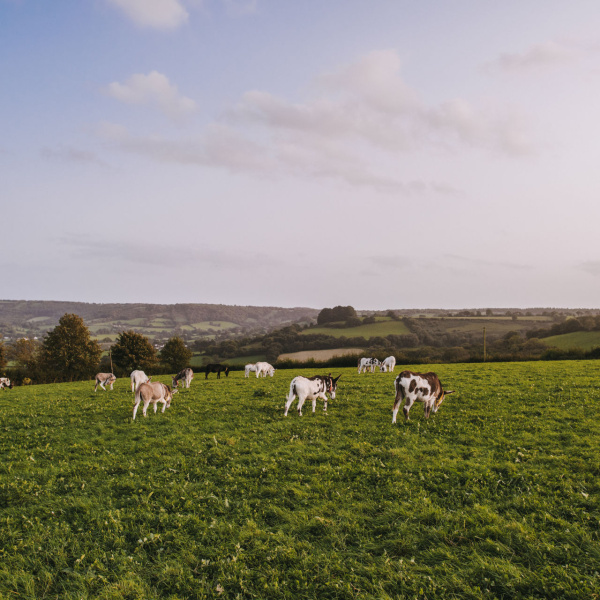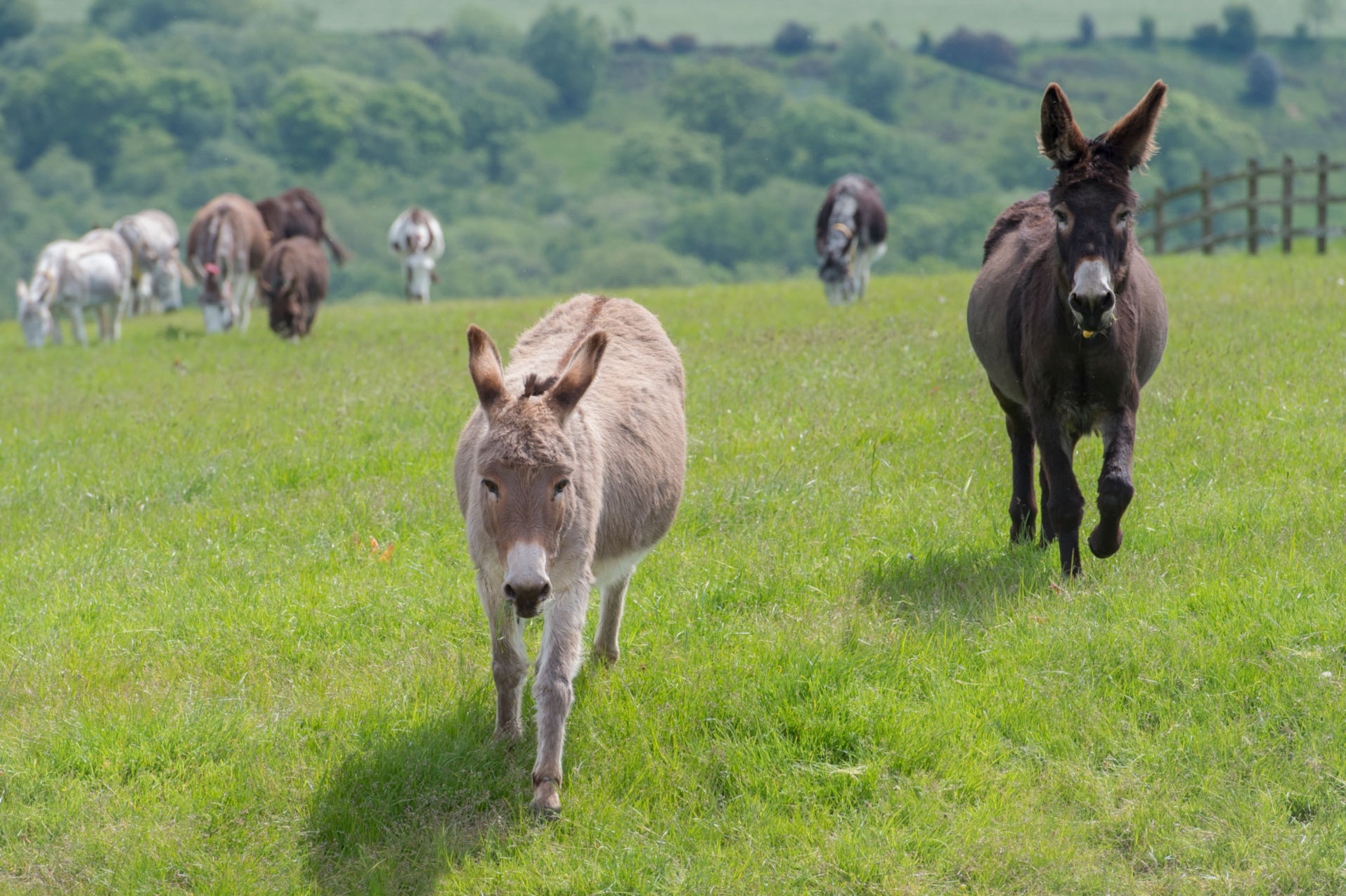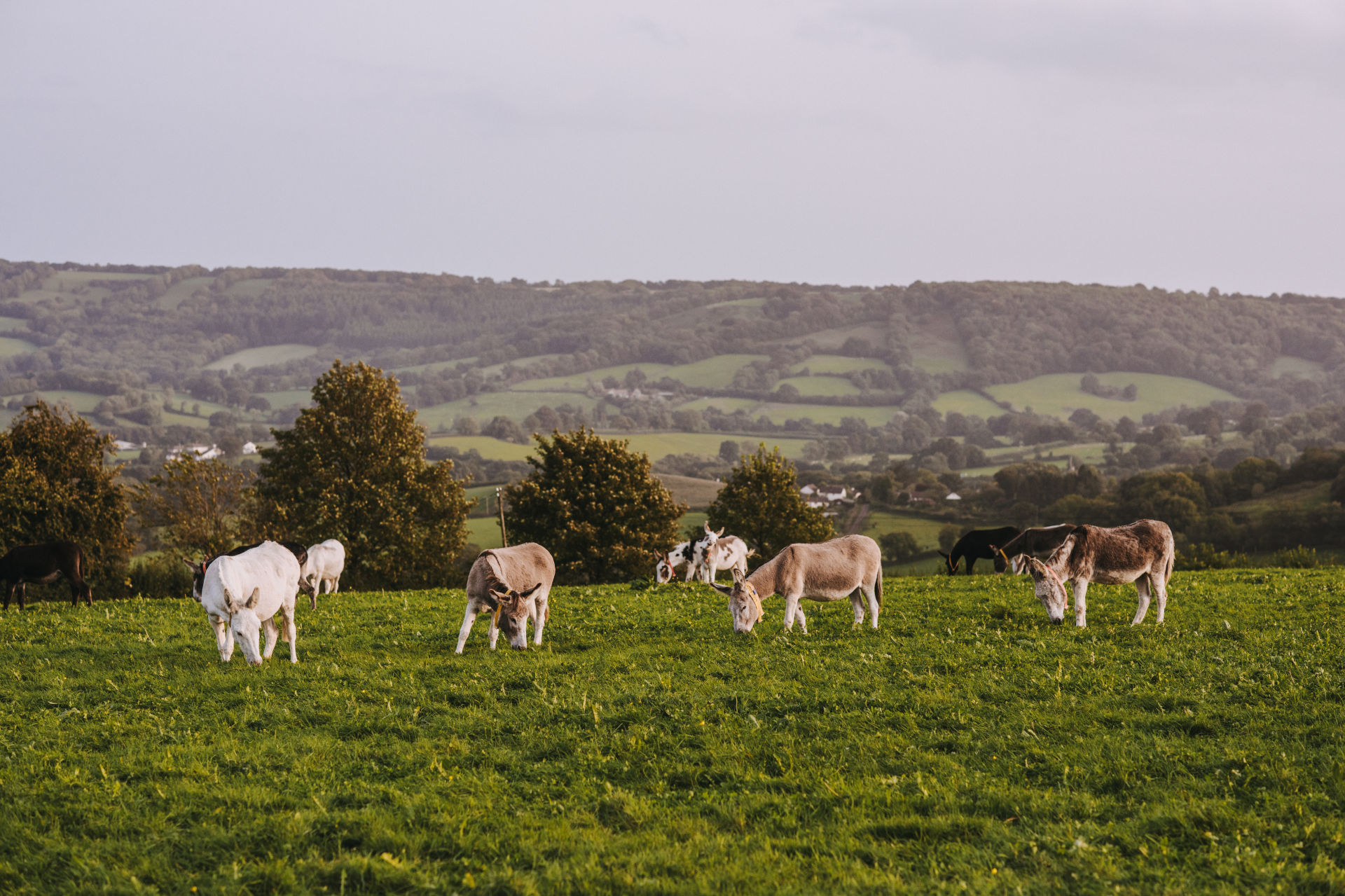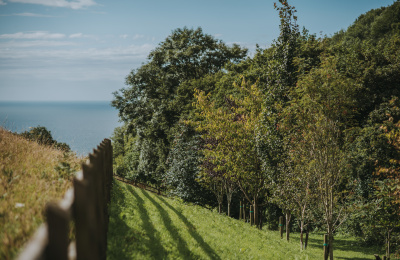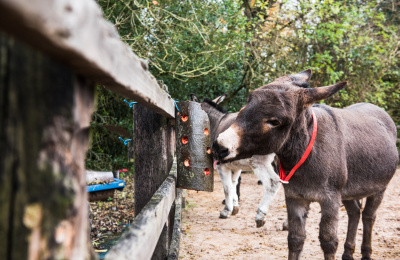Donkeys at our Sidmouth visitor centre are receiving an extra boost to their welfare and wellbeing thanks to an extension to their grazing opportunities at Slade House Farm.
Staff have identified an opportunity to give the donkeys at our main visitor site in Sidmouth, Devon, access to an additional area of land which contains a more diverse range of plant species for the donkeys to graze and forage on.
The donkeys will benefit from extra enrichment opportunities - a key factor in improving welfare - as well as a more varied diet and plenty of exercise.
More choice, more enrichment
The donkeys in New Barn have always had access to a large, airy barn with a thick straw bed, a concrete yard area and pathways leading to grazing fields. They will still have the same access to these facilities, but with an extended area to roam across which will be available to them throughout the day and night. They are free to choose where they’d like to be.
The new area starts with a track which will run through woodland, and then out into open pasture by the Field of Dreams. Our wildlife and conservation team have identified that the vegetation consists of mixed native species of grasses and flowering plants which are relatively low in sugars, high in fibre, and more suitable to a donkey’s low energy requirements.
Fiona Cooke, head of research (Europe), says: “Enrichment is really important for the donkeys, as it allows them to exhibit more of their natural behaviours, and offering them this chance in a natural environment provides additional benefits.
“The donkeys will be able to apply their natural skills in foraging by picking out different things to eat. We will hopefully see them make much more use of their upper lip and long noses to find the snacks they want!”
A closely monitored approach
Changing a donkey’s grazing is something that has to be very carefully managed. We have had extensive input from our experts in donkey care, ecology and research, to ensure it is the best thing to do for the herd.
Each donkey has been assessed individually by a vet, to make sure that this new grazing opportunity is right for them.
The herd consists of a mix of 54 donkeys of various ages, some with ongoing health conditions. We have identified that some of the donkeys would benefit from a different approach - for example, those with poor foot health or arthritis. These donkeys have been given a separate area to graze, so we can continue to do what is best for them and their individual needs. Twiggy, Brandy, Gem and elderly donkey Blueberry Pie are among those in this group, who can now be found in Flagpole Field 2 (with some moving to Shelter 2 at a later date).
Driving the future
The new grazing opportunities also provide us with a means of learning more about our donkey’s natural behaviour. Our teams will watch the donkeys to see how they forage, which plant species they prefer, how they interact with each other, and more.
Sebastian, and a few others, will be wearing a tracking device secured using a surcingle so that it doesn’t interfere with his movement or normal activities. The device will monitor heart rate, distance travelled, GPS location, and speed – all useful pieces of information that will contribute towards improving our understanding of the donkeys' behaviour.
What we learn will also help to inform a longer-term project, which aims to improve the management of the land that our donkeys graze.
Not only will our own herd receive an immediate boost in their wellbeing, but we can look forward to sharing best practice advice with other donkey owners, whose animals will also reap the rewards of the Sidmouth donkeys' 'freedom to roam'.
